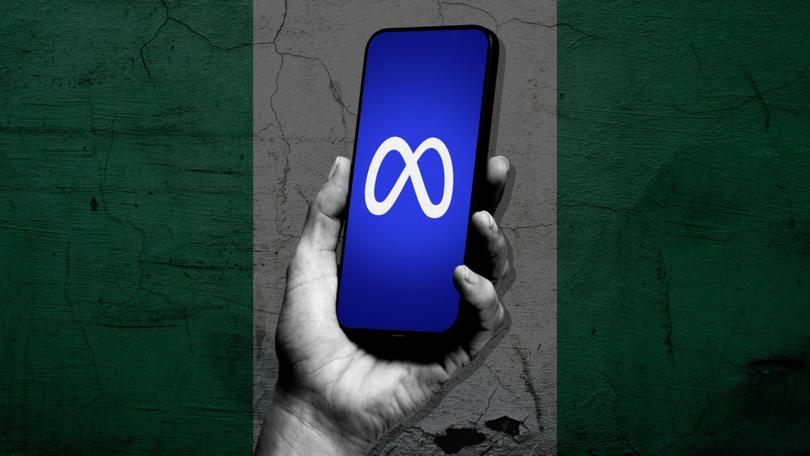MICHAEL USHER: Meta pulled the plug on Nigeria’s evil underbelly of sextortion far too late & must do more
MICHAEL USHER: Overnight, Meta pulled the plug on 63,000 Facebook and Instagram profiles linked to Nigerian sextortionists. Now they must boot out the other scammers.

There was a huge development today that should save young Australians taking their own lives.
It’s not a development we should praise, in my view, because it’s tragically too late to have prevented some teen suicides and only came about due to intense media scrutiny of Mark Zuckerberg’s behemoth company Meta.
But in a few short lines of code somewhere in Meta’s matrix, 63,000 accounts linked to sextortionists and scammers were wiped.
Sign up to The Nightly's newsletters.
Get the first look at the digital newspaper, curated daily stories and breaking headlines delivered to your inbox.
By continuing you agree to our Terms and Privacy Policy.All those accounts were listed in Nigeria. Almost all are linked to a notorious group known as the Yahoo boys, who flash their wealth and status online, but create their fortunes by engaging in financial sexual extortion scams, mostly on young men in the western world, including Australia.
On the 7News Spotlight program earlier this year, reporter Sarah Greenalgh and Producer Phil Goyen went to Nigeria to profile the Yahoo Boys, and interviewed young Nigerian men who helped execute the sextortion scams.
These men pretend to be teenage women and girls, luring young men into thinking they love them.
The flattery and flirting eventually lead to some level of trust where the young men are honey-trapped into losing their inhibitions and sharing intimate images. Before they know it, those images are used to extort money, with the Nigerian scammers threatening to hack their accounts if they haven’t already and share those compromising pictures with contacts in their phones, such as parents and best friends.
For young 17-year-old Victorian Rohan Cosgriff, this was all too much. He was a victim of these vile Nigerian gangs and became so distraught he took his own life. He was mortified and couldn’t tell his parents. He just couldn’t see a way out. His note to his folks was beyond heartbreaking: “I made a huge mistake. I’m sorry.”
This dear boy didn’t make a huge mistake. Meta made the huge mistake, and it should pay, in my view. It had known for some time that these Nigerian scammers had been using Instagram and Facebook as their platforms of pain and fraud.
There had been strong reporting internationally and from Spotlight highlighting the Instagram and Facebook scams. But as Sarah and Phil discovered, Meta was indignant at Spotlight’s request to question its executives when we approached them in the United States to do so. The impression given was that they were above questioning and had the matter in hand.
Well, they didn’t, and almost every week another new and tragic example of teen suicide as a result of sextortion came to light.
Once sextortion became a mainstream term thanks to documentaries like Spotlight, the heat was on Meta to explain its role and take action. Finally — too late for Rohan — Meta has now acted.
Overnight and so easily, it pulled the plug on Nigeria’s evil underbelly. In addition to the 63,00 accounts removed, Meta said another 7200 Facebook accounts, pages and groups dedicated to tutorials and tips on how to execute these scams, were also wiped from their platforms. It added that a network of another 2500 sites run by 20 individuals was shut down.
It’s an impressive bust. A bit like those overnight raids we see by police targeting criminal gangs — a whole lot of kicking down doors and busting the apparatus of crimes.

Except in this case, who pays? Who gets charged? Who goes to jail for coercing young Rohan to take his life and hand his family a lifetime of pain?
No one is the deeply tragic answer. Great big Meta that throws international teams of lawyers at governments around the world when they dare attempt to have them act within local laws and comply with taxes and regulations, certainly didn’t act out of moral compulsion. It was shamed into action. Mainstream media did what mainstream media does well and made sextortion a mainstream word and concern, which made Meta take action.
Will Meta now shut down the fake ads that litter its platforms, trading on fake celebrity endorsements? Those insidious scams are fleecing Australians out of their savings by tricking them into believing that celebrities or money experts are endorsing these schemes. But they’re nothing but scams.
Meta knows about these scams. It’s been fighting litigation here in Australia and the United States.
Meta has so far refused to shut down these advertisements or kick them off their platforms. But as we saw overnight, this can happen. Very easily it seems.
If Mark Zuckerberg is cleaning the house, please get your coding team to keep going and put a broom through your platforms. Lose a few clicks, or interactions, or page views or retentions — and however else you make your billions — but don’t stop with the Nigerian syndicates.
Clean up Facebook and Instagram and their messaging services and save our kids and hardworking retirees from any more pain or loss.
